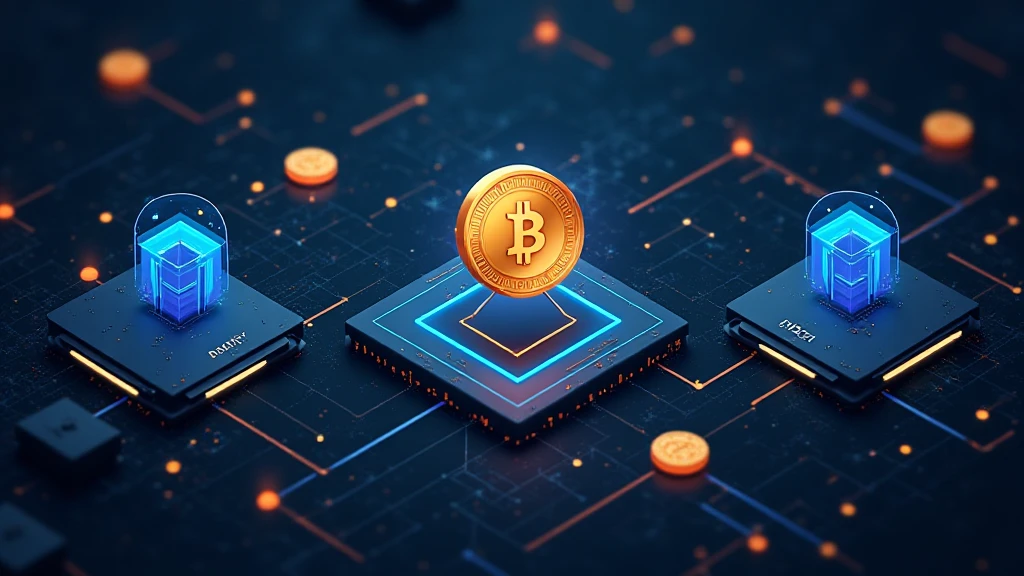
Introduction
In recent years, decentralized finance (DeFi) has experienced explosive growth, with the total value locked in DeFi projects reaching over $80 billion in 2024. However, with substantial growth comes significant risk. Just in 2024 alone, a staggering $4.1 billion was lost to DeFi hacks and exploits. As we dive into the world of Bitcoin DeFi and stablecoins, one question arises: How can we ensure the safety and integrity of our investments in this burgeoning ecosystem?
This guide aims to provide insights into the critical role that audits play in protecting Bitcoin DeFi stablecoins, alongside some of the best practices in the industry.
The Importance of Auditing in DeFi
When we consider security in the context of traditional finance, think of it as having a bank vault for your assets. Similarly, in the blockchain world, audits act as the vault door, ensuring your digital assets are safeguarded from vulnerabilities.

- Instant Security Validation: Audits deliver a thorough analysis of smart contracts, detecting potential risks before deployment.
- Regulatory Compliance: An audit ensures adherence to compliance standards, critical for tackling the increasing regulatory scrutiny in the DeFi space.
- Building Trust: Transparent audits allow users to feel secure when using platforms and tokens, leading to increased adoption.
Understanding Stablecoins in DeFi
Stablecoins are digital currencies designed to maintain a stable value against a fiat currency or other assets. They serve as a bridge between cryptocurrencies and traditional financial systems, making them essential in the DeFi ecosystem.
Common stablecoins include USDC and Tether (USDT), but Bitcoin also plays a crucial role in the development of stablecoin frameworks.
Let’s break down how stablecoins operate:
- Collateralized Stablecoins: Backed by collateral, like fiat or cryptocurrencies, to maintain price stability.
- Algorithmic Stablecoins: Use algorithms to adjust the supply based on current market demands.
Each type has its advantages and respective risks, underscoring the importance of audits to ensure their stability and security.
Common Vulnerabilities in Bitcoin DeFi
Identifying vulnerabilities in Bitcoin DeFi environments is paramount for investors. Some common issues include:
- Smart Contract Bugs: Simple coding errors can lead to devastating hacks.
- Oracle Manipulation: Weaknesses in price-feeding mechanisms can be exploited.
- Liquidity Risks: Withdrawal and trading can seize your funds if there are insufficient reserves.
2025 will bring stricter regulations in the crypto space, making audits not just a precaution but a requirement.
Best Practices for Conducting Audits
When auditing a Bitcoin DeFi project, adherence to best practices ensures a thorough evaluation. Here are key practices one should follow:
- Engage Reputable Audit Firms: Trustworthy firms like hibt.com possess the expertise and credentials necessary to evaluate DeFi protocols.
- Test at Different Levels: Conduct both static and dynamic tests to cover all aspects of the code.
- Continuous Audits: Online funds require ongoing audits due to changing market conditions and emerging threats.
Case Studies: Successful Audits of DeFi Projects
To showcase the effectiveness of audits, let’s explore how some successful DeFi projects leveraged auditing:
- Project A: After an audit, vulnerabilities were identified that could have led to a loss of up to $10 million, corrected before the launch.
- Project B: The project engaged multiple audit firms to ensure a thorough review, decreasing their chances of becoming a target for hackers.
Future Trends in Bitcoin DeFi and Audits
As we advance towards 2025, the Bitcoin DeFi landscape will evolve. The convergence of technology and compliance will play a crucial role, with audits becoming integrated into the development process. The rise of tiêu chuẩn an ninh blockchain will further redefine industry standards.
With the increase of Vietnamese traders entering the crypto space, a projected growth rate of 40% in crypto adoption is expected in Vietnam alone.
Conclusion
In the fast-paced world of Bitcoin DeFi, the importance of audits cannot be understated. They serve as a protective measure against vulnerabilities and instill confidence in users navigating this digital universe. As we venture further into the adoption of stablecoins and DeFi projects, incorporating robust auditing practices will be essential in ensuring the security of digital assets.
As always, stay informed, employ robust auditing practices, and consult local regulators before making any financial decisions. Remember that securing your assets is as critical as the investments you make.
For reliable insights and updates on Bitcoin DeFi audits and best practices, check out btcmajor.
Author: Dr. J. K. Elon
An expert in blockchain technology and DeFi audits, having published over 15 papers in top-tier journals and led audits for several renowned projects.






